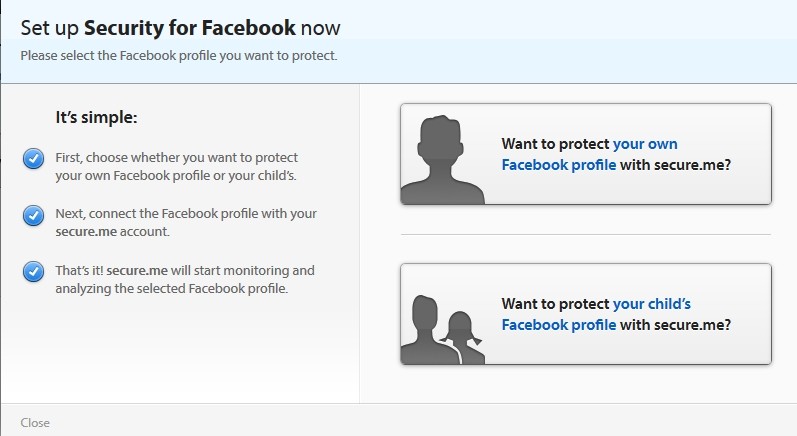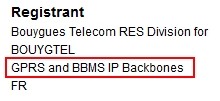How to secure your Facebook account
We repeat it so, the user is often the fragile piece, it's often him the head of his own piracy.
It's usually once pirate that he realizes and that he distrusts sometimes later unjustly everything.
To make the most of millions of services on the Internet in a secure way of knowledge bases about hacking IE security.
These are unfortunately not taught, here is therefore an article to help you see clearly.
We'll see How secure his Facebook account with an informed and knowledgeable eye on your data.
Before you post anything
Even if it's probably already too late and that you have published a lot of personal information about you, you should know in the future even if you delete or hide your content, there's always backed up somewhere.
It's like when you talk to someone, you can always say that you had lied, but the information was shared you can not 'decide '.
Also know that your email addresses and other photos can be saved by anyone with access to it.
What they don't tell you
Facebook uses 'robots' which 'read' and automatically analyze your private messages.
That's why you have the right to very targeted ads.
And it is also looking at ads in your friends you can even guess what speak most of their private messages.
You can even guess the sites they have used to frequent because Facebook also use tracking pixels. I quote:
We use of tracking pixels to customize your use and analyse how people use products and services. For example, we can use tracking pixels to see if a person who has used a specific browser has posted an ad on Facebook and also bought a product from this advertiser.
You thought therefore already be spied everywhere, but this is really pushing the limit of privacy.
Besides you can test you even talk for example about hacking your friends on Facebook and you will see the ads the following week.
Security by obscurity
This term is often used to define to hide information that you do not want to show rather than remove them.
Facebook offers the possibility to choose who sees your content, so take a good half hour to check your settings.
For this click on the icon with the small padlock in the top right, then refine your settings according to the choices available.
You can also find these options by clicking on the icon with the small gear then confidentiality .
Generally, the setting you can leave Public is about who can contact you, unless you want to book your account to your current friends.
The other settings depend on what you want to display to specificpeople so set them as you wish. Just know that you need not necessarily show all to someone you do not know for example in real life.
In the confidentiality still part, I draw your attention to the part called " who can find me with a search? ." »
Two settings are available, the first concerns the search for your information and the second the indexing of your profile by the search engines.
If you allow these settings, a user who know your e-mail address will be able to find your Facebook profile. May the latter find your profile via a search engine.
Secure his Facebook account with dedicated tools
I am not particularly a fan of this option, but some applications allow you to secure your account / your privacy or that of your children.
Here for example Secure.me.
To use it, simply login with your Facebook account and to allow the application.
You then have the choice to secure your account or that of your children:

Secure its effective Facebook account
Once you control the information that you post and you view, you can also secure your account against hacking.
And if you had been hacked in the past, chances are the settings that follow were not applied.
Spend in the Security of Facebook part.
Enable safe browsing, this will prevent a user to recover your password on the fly through the network using the https protocol.
Enable Notifications during connection at least by email address to tell you any unusual successful connection.
You can activate approvals of connection if you want to prevent the connection from an unknown browser by first asking a code you will receive by SMS. The previous setting you indicate an unusual connection but does not, whereas here you have to enter the code received by SMS.
The code generator allows to replace SMS sending by codes for connection approvals.
You can add trusted Contacts if this includes a person in your family. Do not add anyone. In case of loss of your account, Facebook will go through this contact to regain access to your account.
Recognized devices are devices from which 'you' you are connected. Facebook for example holds the connection information to make more pleasant browsing. Check so that devices belong to you and you were well connected with.
Last point, and no not the least interesting, Active Sessions. You should regularly take a look at these sessions indicating the locations and devices allowed to connect. The level of security is well down for these devices because Facebook imagine what are yours. If this is the case, so much the better, if's it not someone may currently be logged into your account. Attention however instead of often false connection. For example, I am told that rather than my current session is Paris while I live 500km.
In addition, if you have used to log in to your Facebook account using a smartphone in EDGE, 3 G connection... etc or via a hotspot, you'll have IPs from differentplaces. This is from the fact that your mobile connect 3 G / 4 G becomes a normal Internet connection and that via the IP addresses of your ISP.
Therefore, learn to distinguish between an IP address from a pirate, or from your own ISP. And this is not easy, you can try sites like ip - adress.com in order to view details about the IP addresses. For example here we see that the IP address is part of the beach reserved for the GPRS mobile:

Only all manufacturers do not communicate their IP ranges and therefore difficult to know if the IP comes from a pirate at an ISP given or if it is only an IP address used by your mobile.
Conclusion
We have seen how to secure his Facebook account using settings of bases that any user should be aware.
Unfortunately I always still get too many calls for help when the damage is already done. So I hope that this article will help a lot of you.
And finally, for the more sceptical, there are free services to secure his Facebook "automatically" using what I've talked about, and more.
Secure.me of avast! is a "real-time anti-virus" for your account.
And privacyfix allows you to set a ton of settings for still other site than Facebook, I recommend it.
Tags: secure his facebook account







![[Darknet] How I Discovered It, and How to Access](https://blogger.googleusercontent.com/img/b/R29vZ2xl/AVvXsEigkvDILsG9sBTqEktFANKPS5HYpz1I4Cn00RhSPezewjQjxnKrznkJmBvWUnLHTrH_5_OibNQhzXA1HoPOKuhMOWkc5kaeA4QKpx5t24CS8rdr8YPqUGT4t8HogBdnS7Txj8p9AQZU7I0/s72-c/%255BDarknet%255D-How-I-Discovered-It%252C-and-How-to-Access.png)
Post a Comment